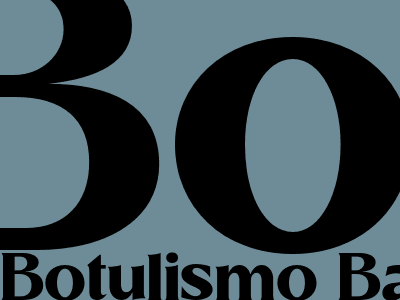
Botulismo Bahia: A Grave Public Health Concern
Introduction: A Silent and Deadly Threat
Botulism, a potentially fatal paralytic illness caused by the neurotoxin produced by the bacterium Clostridium botulinum, has emerged as a grave public health concern in the state of Bahia, Brazil. This insidious disease, primarily associated with contaminated food, has sparked widespread alarm among healthcare professionals and the general population.
The recent outbreak of botulism in Bahia, with multiple confirmed cases and fatalities, has cast a spotlight on the urgent need for heightened awareness, early detection, and effective management of this debilitating illness.
Epidemiology and Etiology: Understanding the Disease
Botulism is a rare but severe neuroparalytic illness characterized by progressive muscle weakness, paralysis, and respiratory failure in severe cases. The disease is primarily caused by the ingestion of preformed botulinum toxin, a potent neurotoxin produced by the anaerobic, spore-forming bacterium Clostridium botulinum.
The spores of C. botulinum are widely distributed in the environment, including soil, dust, and aquatic sediments. Under favorable conditions, such as in improperly canned or preserved foods, the spores germinate and grow, producing the deadly toxin.
Types of Botulism
Botulism can manifest in various forms, depending on the route of exposure to the toxin:
- Foodborne Botulism: The most common form, caused by ingestion of contaminated food, such as improperly canned or preserved vegetables, fruits, and meat products.
- Infant Botulism: Found primarily in infants under one year of age, caused by ingestion of C. botulinum spores, which colonize the gastrointestinal tract and produce toxin.
- Wound Botulism: A rare form caused by contamination of wounds with C. botulinum spores, leading to local infection and toxin production.
- Iatrogenic Botulism: Resulting from the misuse or accidental exposure to botulinum toxin during medical or cosmetic procedures.
Clinical Manifestations: Recognizing the Signs and Symptoms
The onset of botulism symptoms can range from a few hours to several days after exposure to the toxin. The initial symptoms often include:
- Nausea, vomiting, and diarrhea
- Fatigue and weakness
- Blurred vision and double vision
As the disease progresses, more severe neurological symptoms develop, including:
- Progressive muscle weakness, beginning with the eyelids and descending to involve the limbs and respiratory muscles
- Difficulty swallowing and speaking
- Respiratory distress and paralysis
Diagnosis and Treatment: Timely Intervention is Crucial
The diagnosis of botulism is based on the patient's clinical presentation and a thorough medical history. Laboratory testing, including electromyography (EMG) and toxin testing, can confirm the diagnosis.
Treatment for botulism involves supportive care and the administration of an antitoxin, which can neutralize the circulating toxin and prevent further paralysis. Respiratory support, including mechanical ventilation, may be necessary in severe cases.
Prevention: Safeguarding against Botulism
Preventing botulism is paramount to safeguarding public health. Several measures can be taken to minimize the risk of exposure to C. botulinum and its toxin:
- Proper Food Preservation: Ensure that canned or preserved foods are processed according to recommended guidelines to prevent the growth of C. botulinum.
- Discard Suspicious Food: Avoid consuming bulging or leaking cans, or food with an off odor or taste, as these may indicate contamination.
- Infant Feeding Precautions: Do not feed honey to infants under one year of age, as it may contain C. botulinum spores.
- Wound Care: Keep wounds clean and seek medical attention promptly for any signs of infection.
- Responsible Use of Botulinum Toxin: Ensure that botulinum toxin is used only by qualified healthcare professionals for approved medical or cosmetic procedures.
Conclusion: A Call for Vigilance and Collaboration
The outbreak of botulism in Bahia highlights the urgent need for increased awareness, proactive prevention, and effective management of this severe disease. Healthcare professionals play a pivotal role in early detection, diagnosis, and timely intervention.
Public health agencies, in collaboration with the food industry, must prioritize food safety measures and educate the public about the risks of botulism. By working together, we can safeguard our communities against this deadly threat.